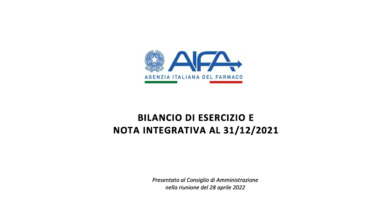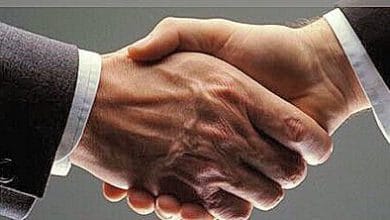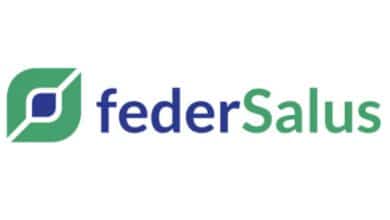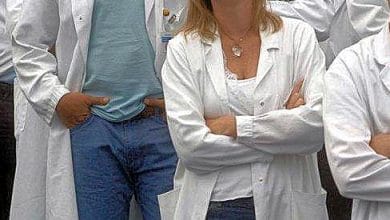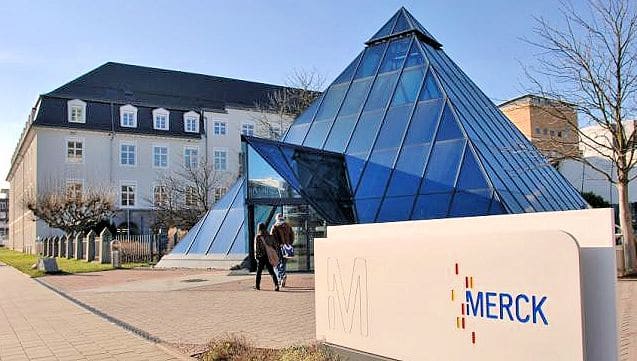
Andrew Ward, Pharmaceuticals Correspondent - May 3, 2015 - Financial Times
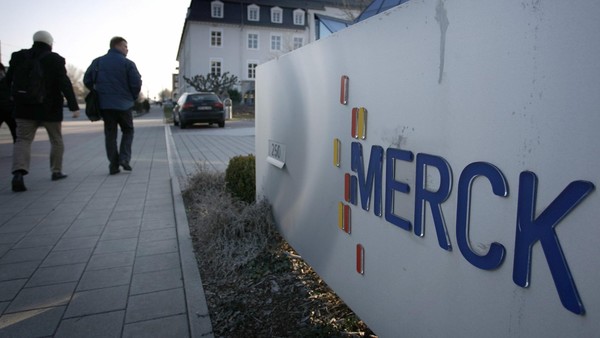
Karl-Ludwig Kley, chief executive, said he wants the German group to be more assertive in its brand ownership worldwide outside of North America.
The existence of two major pharmaceutical brands with the same name became an irritating crescendo for both companies, and the internet undermined a decade-long pact in which brand ownership was divided along geographic lines.
Mr Kley told the Financial Times this was causing confusion among doctors and patients.
“The thing is, we've been underinvesting in our brand for many decades,” he said. “We need to make people more aware that there are two Mercks.”
Both were originally part of the same company until the American company was confiscated by the US government during World War I.
They have since become competitors, with the German Merck own the worldwide rights to the name, except in the United States and Canada, where it is known as EMD. US Merck is known as MSD in the rest of the world.
The Internet has made this deal more difficult to administer, with the US company increasingly referred to as Merck around the world. The media often use official company titles – Merck & Co of the United States and Merck KGaA of Germany – to distinguish them.
 The problem was highlighted last year when dei protesters mistakenly showed up outside the London offices of German Merck to protest alleged unethical behavior by US Merck in Africa.
The problem was highlighted last year when dei protesters mistakenly showed up outside the London offices of German Merck to protest alleged unethical behavior by US Merck in Africa.
Mr Kley cited the cases of mixed ongoing clinical trial data and acknowledged the situation was "not satisfactory to anyone".
With 2014 sales of $ 42.2 billion, Merck is three times larger in the US than its counterpart. However, Mr Kley clarified that the world's oldest pharmaceutical company has no plans to give up a name that traces back to its 17th-century founder, Friedrich Jacob Merck, whose descendants still control the German company.
“From our point of view they have a rather short history, but a history full of successes and pride,” he said, referring to Merck USA. “They have been our baby so to speak. The two companies are cordial. We are trying to work abroad, but it is not easy”.
While in the US Merck owns the brand in the world's largest drug market, Mr Kley pointed out that German Merck has fastest growth in markets such as China and Brazil. “They are Merck from two countries, present in 150.”
In the US, Merck said it was committed to "solving problems through communication and cooperation, without the need to resort to litigation".

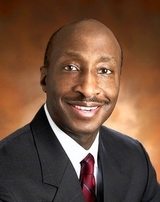 Kenneth C. Frazier, Chairman, Chief Executive Officer and President of Merck & Co. Inc, age 59, received total compensation of $ 25,029,370 in 2014
Kenneth C. Frazier, Chairman, Chief Executive Officer and President of Merck & Co. Inc, age 59, received total compensation of $ 25,029,370 in 2014
Related news: Peter Merck has died at the age of 87
Ed.: Merck KGaA is a chemical and pharmaceutical company headquartered in Germany. Founded in 1668 in Darmstadt, it is one of the oldest chemical-pharmaceutical companies still operating today. Private until 1995, Merck KGaA is now a public company, although the Merck family still controls a large portion of the company's shares.
Following the First World War, Merck lost all assets located in foreign states, including the subsidiary Merck & Co. on US territory. Merck & Co., called Merck Sharp and Dohme (or MSD) outside the United States and Canada, is now an independent company.
Merck KGaA operates primarily in Europe. Since Merck & Co. has the rights to use the Merck name in North America, Merck KGaA operates in this region under the name EMD, short for Emanuel Merck, Darmstadt.
Merck is a limited partnership limited by shares (KGaA). At least one of the partners has unlimited liability for the company's creditors (general partner). The other partners (limited partners) are involved in the share capital divided into shares, without being personally liable. It is therefore a hybrid between a public limited company and a limited partnership with a focus on corporate law.
In Merck KGaA the Merck family with E. Merck KG maintains the Kommanditaktionäre with approximately 30 percent of the total capital and is complementary to the remaining 70 percent.
E. Merck KG's capital is predominantly held by silent partners who are members of the extended Merck family. The Merck family has 217 members (as of October 2009). Of these, 130 form the assembly, which in turn determines the family council.

